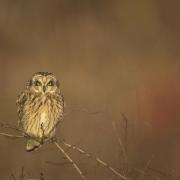The highly adaptable red fox is found in a wide range of habitats throughout the Northern Hemisphere including, of course, the UK. With its gorgeous flame-red fur, thick, sumptuous brush and warm, fiery eyes, it is arguably Britain’s most beautiful mammal. Unfortunately, however, and in common with the beleaguered badger, it is also among our most persecuted. Long maligned as unconscionable rural villains, foxes have been demonised to such an extent that it’s difficult to separate myth from reality, or to even think of these creatures without also bringing to mind images of ruthless red-jacketed riders on horseback amid a terrible clamour of horn-blasts and baying hounds.
Seeming to sharply divide opinion wherever they go, even those foxes that have moved into the nation’s towns and cities have not escaped our bitter scorn. Where once they faced snares, shotguns and the now illegal violence of the hunt, they now face hostile householders and frenzied finger-pointing from an ill-informed public, with tales of emboldened urban foxes entering people’s homes and even attacking their children. But whatever the truth of these stories, I think foxes are tragically misunderstood and, with a little tolerance, understanding and perspective, there is absolutely no reason why we can’t learn to live alongside, and even come to love, these wonderful creatures.
As opportunistic predators, foxes do sometimes prey on lambs and other livestock. However, losses due to such predation are generally low, with the overall economic impact on farming largely offset by the fact that foxes also take large numbers of rabbits, which are a major source of agricultural damage. Similarly, urban foxes, which generally pose only a minor nuisance, play a vital and shamefully unappreciated role in removing unwanted rats and mice from the streets, gardens and back alleys of our neighbourhoods.
We are quick to insist that foxes kill for pleasure, savagely slaying all occupants of the chicken shed for no good reason, though we are less inclined to consider that their natural impulse is to kill prey whenever it’s available, with any surplus food stored away for leaner times. We are quick to speak of the growing menace of urban foxes, yet we are less inclined to place this in its proper context alongside the many thousands of people who are injured – some fatally – by pet dogs. And most of us are unaware that foxes do not have an aggressive nature, that they are in fact highly social and caring animals, with adults looking after cubs that are not even their own.
In the cold depths of winter, when foxes are actively courting, the chilling scream of the vixen rings out in the dead of night in both town and country alike. So, next time you hear this evocative shriek when lying in bed, rather than viewing it as a source of irritation, perhaps you will, like me, see it as something for which to be thankful. Who knows, you may even feel a tingle of excitement.



























